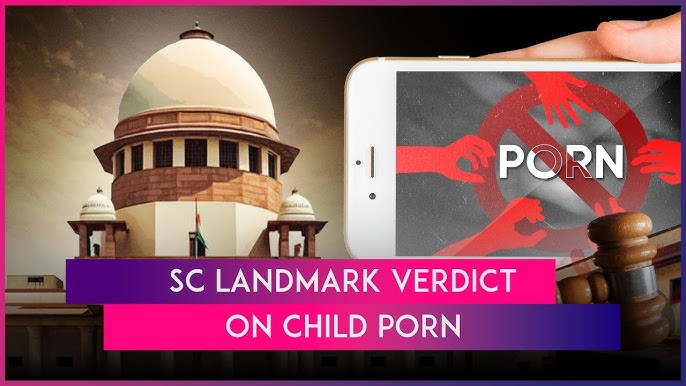
Context
The Supreme Court held that viewing in person, downloading, storing, possessing, dispensing or displaying pornographic acts related to children, appeals to criminal legal responsibility under the Protection of Children from Sexual Offences Act (POCSO), 2012 and the Information Technology Act, 2000.
Background
- The Supreme Court verdict was based on an appeal filed by NGO, Just Right for Children Alliance, in opposition to a Madras High Court decision.
- The High Court had concluded that looking or downloading pornographic acts concerning children in personal domain names was not a criminal offense under the POCSO Act.
Supreme Court ruling
- The Supreme Court urged the Parliament to amend the POCSO Act to replace the term “children pornography” with “Child Sexual Exploitation and Abuse Material” or CSEAM.
- The term child pornography can lead to a trivialisation of the crime, as pornography is often seen as a consensual act among adults.
- The courtroom said that Section 67B of the Information Technology (IT) Act had penalized the use, transmission and ebook of obscene substances, which include baby pornography.
- It has also made browsing, advent, collection, on-line facilitation or enticement of children into any sexual act or behavior an offence.
- Section 15 of the POCSO Act penalizes storage of child pornography with an aim to share or transmit it.
- The court advanced the precept of ‘optimistic ownership’, this means that someone was responsible if at any factor of time he had an invariable degree of power and knowledge to control, manipulate, alter, modify or destroy the material.
Actions taken by using India to address the problem
- Cyber Crime Unit (CCU): It handles instances under the Protection of Children from Sexual Offences (POCSO) Act and the Information Technology (IT) Act.
- Cyber Crime Prevention against Women and Children (CCPWC) Scheme: The goal is to have an effective mechanism to address cyber crimes towards women and children inside the country.
- National Commission for Protection of Child Rights (NCPCR): It works with law enforcement businesses, conducts consciousness campaigns, and intervenes in instances to ensure children’s protection.
- Indian Cyber Crime Coordination Centre (I4C): coordinates law enforcement efforts throughout the country to address cybercrime, including child pornography.
- Cyber Tipline: It is the place to file child sexual exploitation and is operated through The National Center for Missing and Exploited Children (NCMEC).
Conclusion
- The Supreme Court’s ruling marks a transformative step in redefining how child sexual exploitation crimes are regarded and addressed in India.
- The ruling has sent a strong message that society must not trivialise or mischaracterise these heinous acts.
- The court’s suggestions urge a comprehensive, multifaceted technique concerning legislative adjustments, cognizance concerning sex education in India, and assist systems to defend kids from exploitation and abuse.
Source: The Indian Express
Post Views: 858
